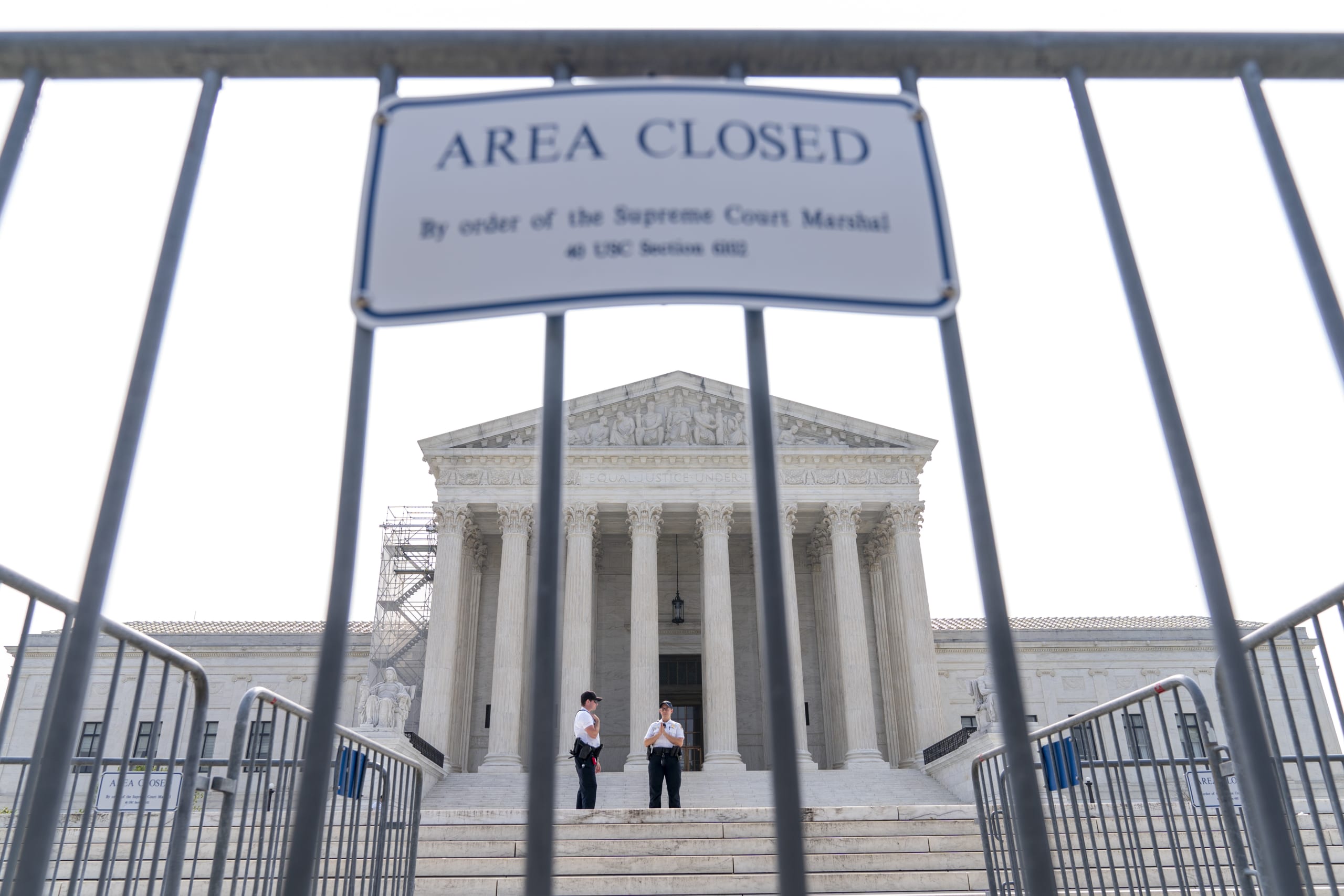We bring news that matters to your inbox, to help you stay informed and entertained.
Terms of Use and Privacy Policy Agreement
WELCOME TO THE FAMILY! Please check your email for confirmation from us.
“The next term is shaping up to be a term that is no less busy and no less consequential than the one we just finished,” says Elizabeth Wydra, CAC President.
Legal experts are strategizing on what the next steps should be following the conservative Supreme Court’s rulings in three major cases: student loans, affirmative action and LGBTQ rights.
Last week, the court gutted affirmative action in the college admissions process, ruled that certain businesses can refuse to provide services to same-sex couples, and blocked President Joe Biden’s $430 billion student debt relief program.
Community leaders and advocates say all three cases were a major blow to Black Americans.
During a press call with Constitutional Accountability Center (CAC) on Thursday, the organization’s president Elizabeth Wydra told theGrio that the Supreme Court had put its conservative and business interests before the American people.
“There is a rather extraordinary success rate for business cases before the court,” she noted.
Wydra appeared to draw a connection between the Supreme Court’s rulings in favor of businesses and recent reports that conservative justices on the court have not self-reported luxury gifts from wealthy associates. The confluence of events has created public distrust in the Supreme Court, she argued.
“When you see these reports of justices hobnobbing with extremely wealthy and powerful individuals who have interests before the court, then it makes the public justifiably question whether the court is really that arbiter of fairness and equal justice under law,” said Wydra.
The scathing reports about several of the justices have repeatedly raised questions about whether they can ethically do their jobs without potentially being influenced by their wealthy connections.
Chief Justice John Roberts’ wife earned millions of dollars after helping lawyers get their cases heard before the Supreme Court. Justice Clarence Thomas neglected to disclose lavish gifts he accepted from a billionaire. And just days after Justice Neil Gorsuch’s confirmation, a law firm purchased a property in which Gorsuch held a stake, as theGrio previously reported.
Leslie Allen Williams, a lecturer at Teachers College, Columbia University, pointed out that the challenges of the Supreme Court prove that elections have consequences.
He theGrio, “We have a situation now where [President Donald] Trump was able to appoint three justices to the Supreme Court.” He added, “[Trump] is the first one-term president in about 100 years to have that significant influence on the court. So, that’s really changed the dynamics of the court.”
Trump notably appointed Justice Gorsuch to fill a seat Democrats argued belonged to President Barack Obama. Several months before the 2016 elections, then-Senate Majority Leader Mitch McConnell used his Republican majority to block Obama’s nominee.
Trump would later fill another vacant seat with Justice Brett Kavanaugh, who Republicans confirmed months before the 2018 election. That confirmation defied a previous argument Republicans made against Obama’s nominee Merrick Garland, which was that it was too close to an election and that the voters should decide which party gets control of the nomination and confirmation process.
Williams said Trump and Republicans “basically hijacked two seats.”
He continued, “If those two seats were filled by a Democratic president…we would still have policies like affirmative action [and] LGBTQ rights would not be an issue.”
In recent months, congressional members, activists and legal experts have called on expanding the number of justices on the Supreme Court to restore fairness and balance.
Last month, Rev. Al Sharpton, civil rights leader and president of the National Action Network, partnered with Just Majority Coalition, a group of 30 activist organizations, to demand the Supreme Court add four more justices to the bench, as theGrio previously reported.
“Americans have lost faith in the justice system because biased decisions and clear-cut corruption have seeped into the highest court in the land,” said Sharpton.
Williams of Columbia University told theGrio that he is not certain that expanding the court is the right solution; however, he believes that the Supreme Court needs to adopt a code of ethics.
“Allowing the justices to police themselves is clearly not working,” he said. “The court allowed for significant influence of corporate and wealthy folks to influence political life in this country.”
CAC legal experts told theGrio that the public should brace for impact as the conservative Supreme Court could once further gut fundamental rights for American citizens in the next session.
“The Supreme Court has already agreed to hear next cases on access to the court’s employment discrimination, on the government’s taxing authority, and of course, on the Second Amendment,” said Wydra.
She added, “The next term is shaping up to be a term that is no less busy and no less consequential than the one we just finished.”
TheGrio is FREE on your TV via Apple TV, Amazon Fire, Roku and Android TV. Also, please download theGrio mobile apps today!

